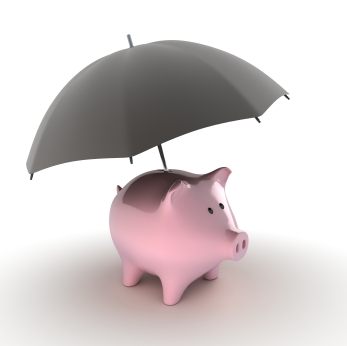If you’ve been around the personal finance blogosphere for more than a day, you’ve read about emergency funds. I haven’t written about emergency funds until because I thought they had already been covered to death. But what hasn’t been covered to death is the why.
Most people write about how an emergency fund is just something you need. “Emergencies happen” they say. This explanation has never done it for a logical person like myself. A ‘just because’ attitude is why people rack up student loan debt without knowing why. This post will explain why you perhaps need an emergency fund. I’ll also explain why do may not need one in the slightest way.
Why you may need an emergency fund
You may need an emergency fund if your income is all pretty much coming from one source. If that source dries up (job loss!) you should still have a way to pay your bills (ala emergency fund).
You may also need an emergency fund if your budget is constantly up in the air. This may be because of health issues, kids, or other miscellaneous question marks in your life. You may be doing alright now but if something crazy happens, you’ll need some money to keep you dry.
It’s also wise to have an emergency fund if you’re a spontaneous person. Casey Neistat (popular advertiser and YouTube vlogger) was suddenly exposed to video editing at age 20. He had to get his own computer to he could learn the process. He had no emergency fund. He instead had to max out his only credit card to buy an iMac.
Yes, I know an emergency should be reserved just for emergencies but sometimes epiphanies are worth stretching from your normal budget. Instead of an emergency fund, perhaps people like Casey could call it an inspiration fund. Inspiration usually proceeds a surge in the necessity to spend money.
Why you may not need an emergency fund
Personally, I keep a pretty small emergency fund. It’s because I have many sources of income. Heck, even if America was vaporized, I still wouldn’t need an emergency fund. Unless I died along with it, of course. But I’ll also say I’m not rich. I don’t make a ton of money. But I keep my incomes so low and my income streams so high, I really don’t worry about having too much money on tap.
Emergencies that may occur
Just for a visual, I want to list out some types of emergencies that may arise:
- Flooding in your basement
- Healthcare deductibles jump right before you need to see the doctor
- The water pump in your car stops spinning
- Your laptop doesn’t power on
- You have a car accident where there’s so much damage to property or people, your insurance doesn’t cover it all
- You get a speeding ticket
- You get evicted and the only places to rent that are available require a 3-month deposit
- You need to fly home for a funeral
For most people, an emergency fund is necessary. It’s because life is unpredictable. However, if you do have low expenses and many incomes streams, don’t feel pressured into having a massive emergency fund. But let’s close the post the same way we started it. Let’s address the reasons why people tell others to establish an emergency fund without sufficient reasoning.
An emergency fund is largely psychological. It’s about peace of mind. With an emergency fund, you become strengthened. You feel any financial obstacle that arises can be swiftly taken care of by making a quick withdrawal from your bank account. It’s a good feeling. With that said, there are very few people who can’t benefit from having one of these funds. Think long and hard whether or not you need one and then proceed however best you see fit.
I’m a personal finance freelance writer and webmaster. I welcome you to visit me at www.thefrugalpreneur.com

